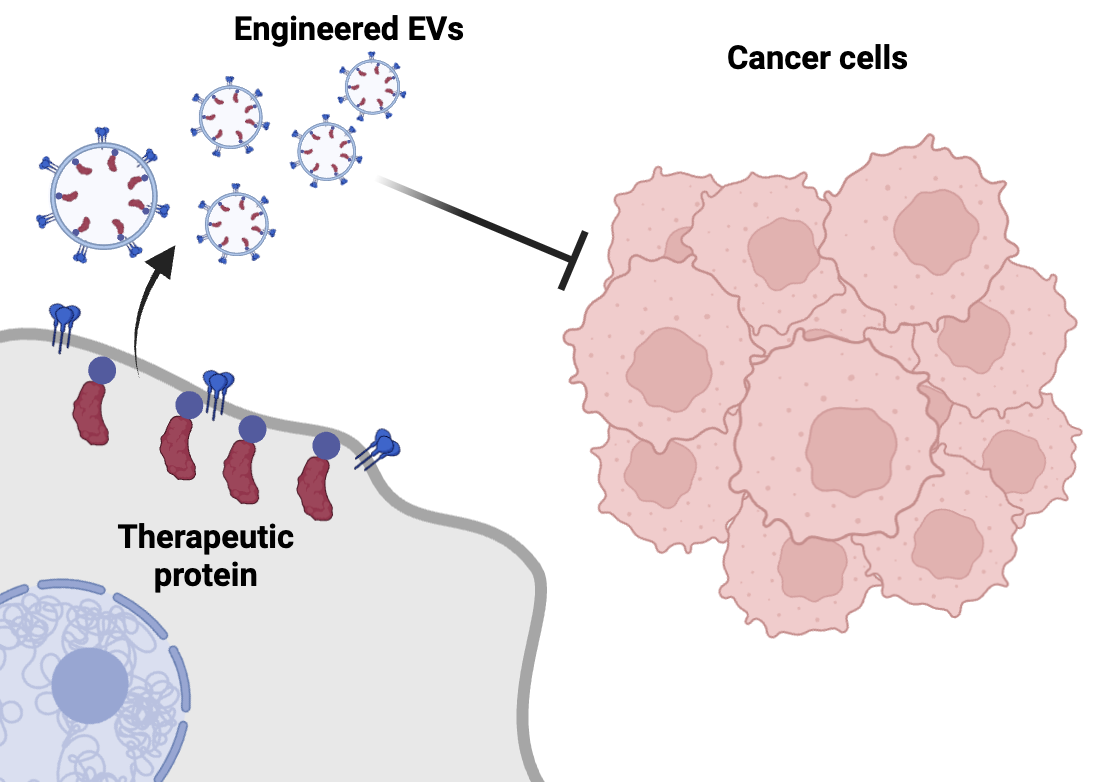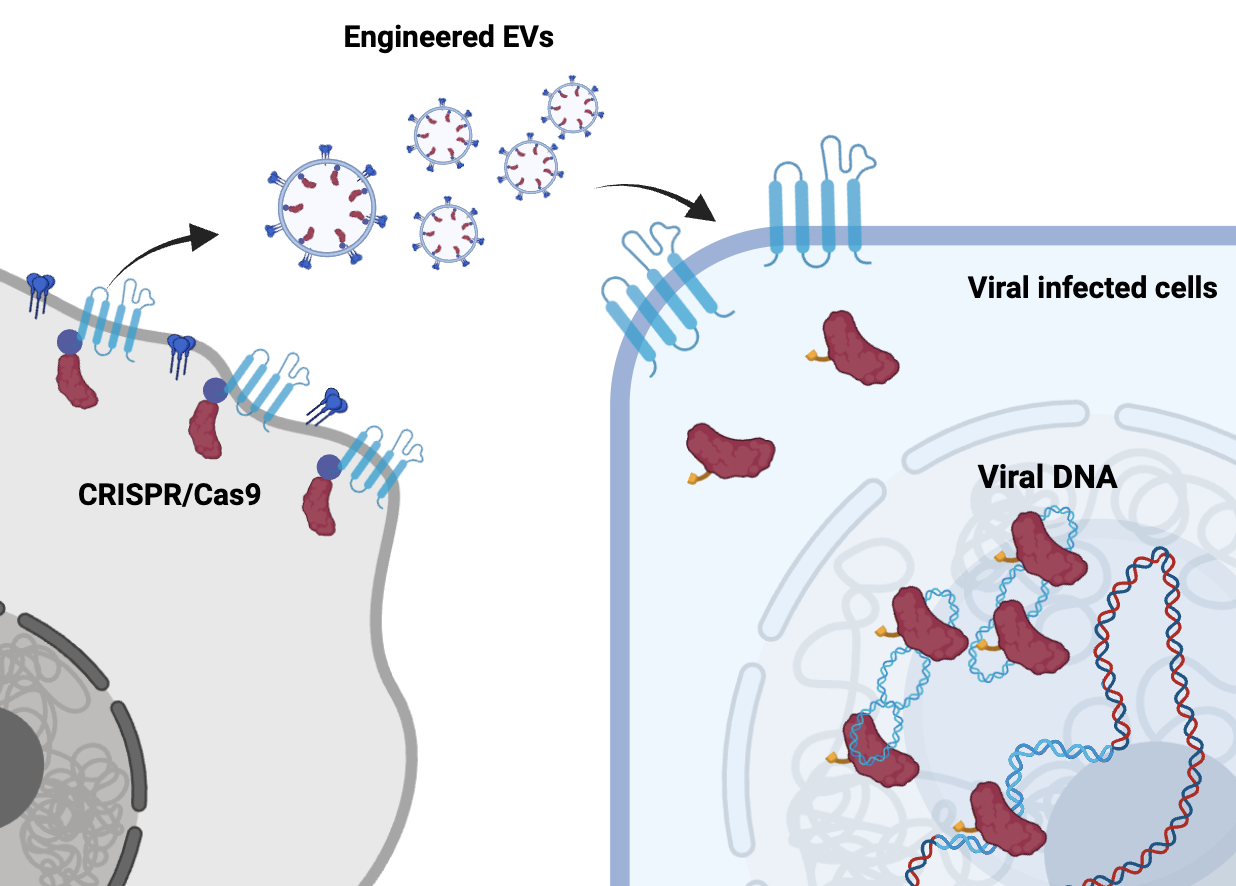Research
The central focus of our research is the development and adaptation of cutting-edge gene editing technologies for both fundamental laboratory investigations and translational therapeutic applications. We are dedicated to establishing innovative therapeutic interventions for a range of diseases, employing two complementary strategies: (i) the engineering of extracellular vesicles for efficient and targeted delivery of gene editing tools, and (ii) the precise manipulation of human lymphocyte activation and effector mechanisms to potentiate next-generation lymphocyte-based immunotherapies.
Engineered extracellular vesicles for personalized leukemia therapy
Cancer is one of the leading causes of death worldwide. Surgery, chemotherapy, and radiotherapy are still the most common treatment strategies. Immunotherapy is becoming another important approach to treating some cancers, mainly in combination with other treatments. Our group is currently developing a therapeutic approach based on extracellular vesicles to deliver drugs or effector proteins to the target cancer cells thus creating a universal yet customizable therapeutic strategy that can be adapted for different applications in a patient-specific manner.
funded by AIRC – My First AIRC Grant

Delivery of antiviral extracellular vesicles to target chronic infections

The DELIEV project aims to develop a new therapy for chronic hepatitis B. This disease, caused by the hepatitis B virus (HBV), is difficult to treat because the virus “hides” inside liver cells where it can lead to complications such as cirrhosis or liver cancer. The therapy relies on using extracellular vesicles, small spheres produced by cells, to carry a molecular system called CRISPR/Cas9 inside infected cells that can detect and destroy the virus DNA. The goal will be to directly eliminate the source of the disease-causing infection and significantly improve patients’ quality of life. Finally, the hope is that this new therapy can be used against other viral infections in the future.
funded by MUR – Fondo Italiano per la Scienza 2
Lymphocyte engineering using CRISPR/Cas9-based knock-out and knock-in approaches to improve immunotherapy
in collaboration with the Lanzavecchia group (INGM)
NEURO-Tr1: Role of cytotoxic T-cell subsets in neurodegenerative diseases
in collaboration with the Geginat group (INGM and UNIMI)
Functional genomic to investigate infectious diseases (EBV, HIV-1, SARS-CoV-2)
in collaboration with the De Francesco and Manganaro groups (INGM and UNIMI)
Interested in learning more about our science or exploring collaboration?
OUR FUNDING
